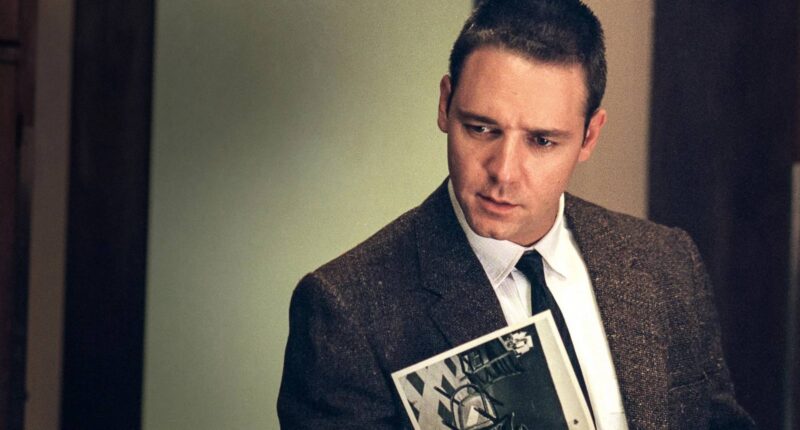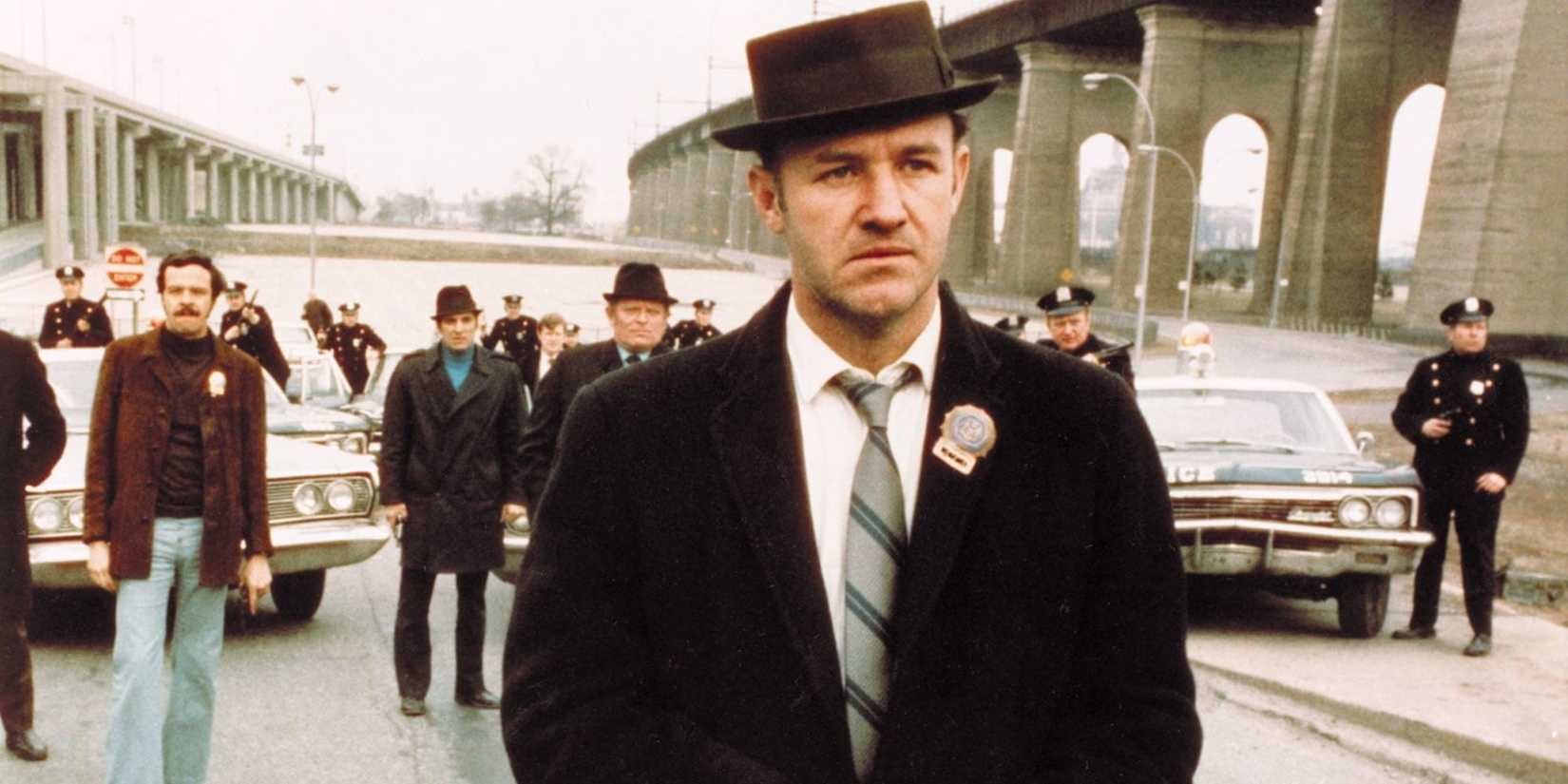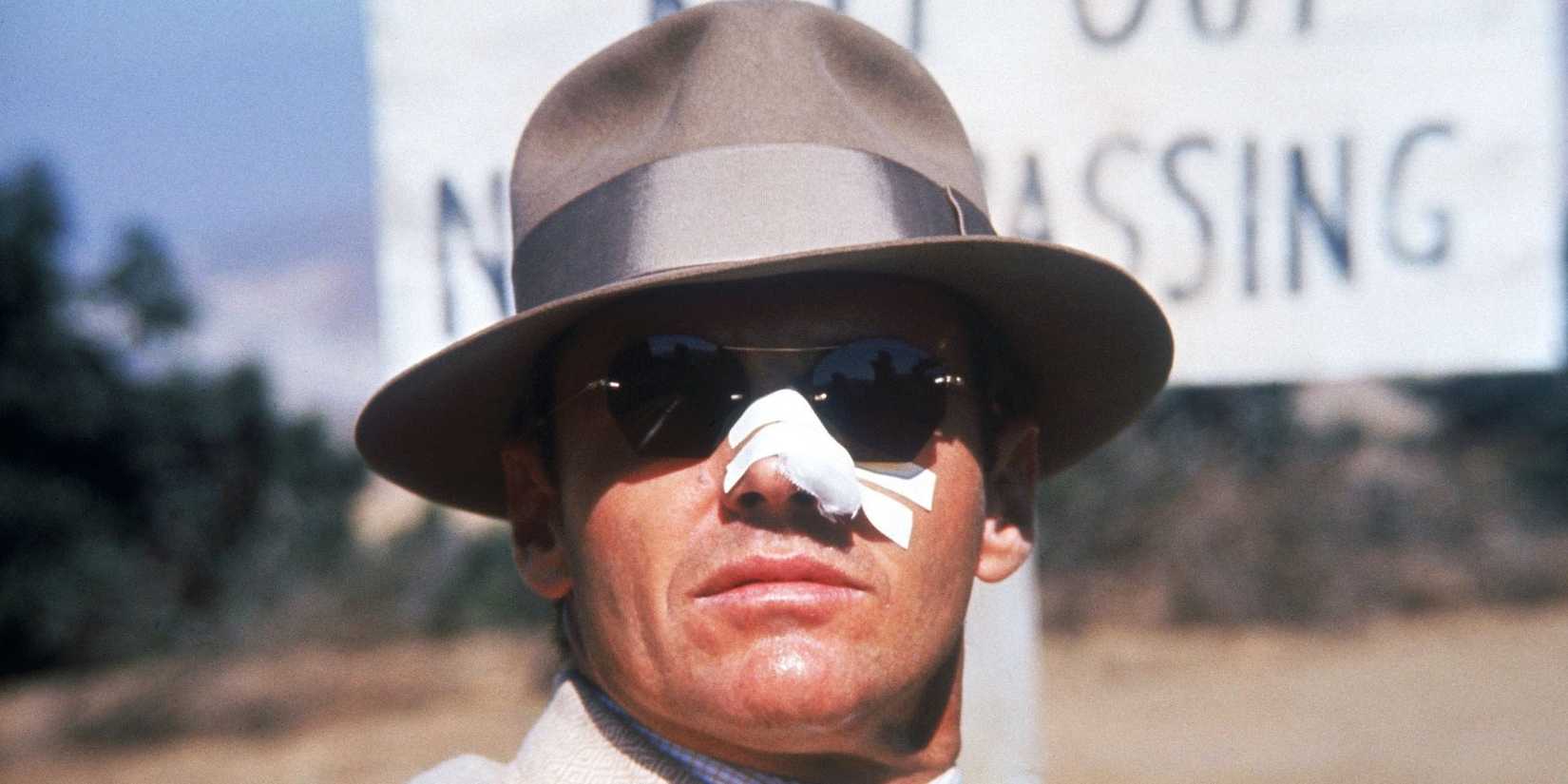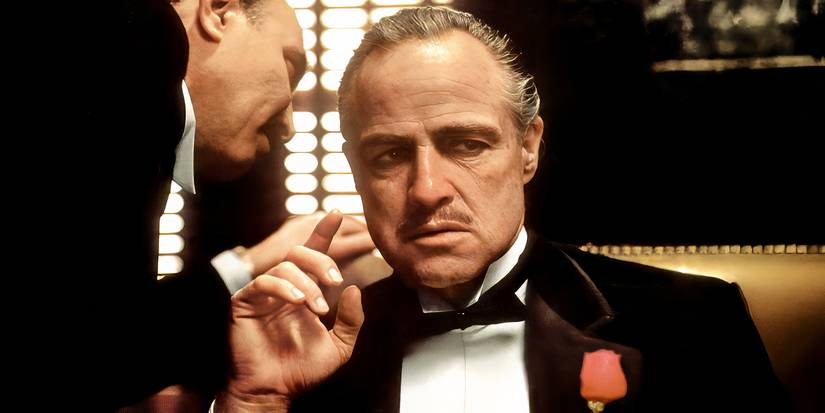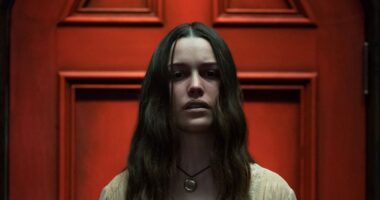When people think of crime cinema, Martin Scorsese‘s name naturally dominates the conversation. From Goodfellas to Casino to The Irishman, he has practically defined the genre for decades. But the world of crime movies is obviously far larger than one man’s body of work. With this in mind, this list looks at some of the very best crime flicks not made by Marty.
Across eras and continents, filmmakers have given us some truly phenomenal stories about corruption, betrayal, violence, and morality. These are the crime movies that stand apart, each deserving its place in the pantheon.
10
‘L.A. Confidential’ (1997)
“Hold up your badge so they’ll know you’re a cop!” Noir seemed all played out by the late ’90s, but then Curtis Hanson came along and revivified it. L.A. Confidential is a neo-noir of the highest order, weaving together a labyrinthine story of corruption, power, and deception in 1950s Los Angeles. The story follows three very different cops, Ed Exley (Guy Pearce), Bud White (Russell Crowe), and Jack Vincennes (Kevin Spacey), as they navigate a murder investigation. Their digging soon unravels into a larger conspiracy involving politics, organized crime, and the LAPD itself.
Like Sunset Boulevard before it, L.A. Confidential captures the glamour of Hollywood’s golden age while simultaneously exposing its rot. Hanson balances style and grit with remarkable storytelling precision. On the acting front, balancing style and grit with remarkable precision. The cast is uniformly excellent, with Kim Basinger winning an Oscar for her enigmatic turn as femme fatale Lynn Bracken.
9
‘City of God’ (2002)
“In the land of the blind, the one-eyed man is king.” City of God is crime cinema at its most intense and intelligent. Set in the favelas of Rio, Fernando Meirelles‘ magnum opus traces the rise of organized crime over decades through the eyes of Rocket (Alexandre Rodrigues), a young man who longs to escape the cycle of violence through photography. The narrative, sprawling yet precise, offers food for thought as well as drama, capturing how poverty and systemic neglect give birth to criminal empires. More than just a gangster epic, City of God is a barbed social critique.
Characters like Lil Zé (Leandro Firmino), a ruthless crime lord, are unforgettable; symbols of how violence becomes a way of life when no alternatives exist. The aesthetics convey this, too. The editing and cinematography are frenetic, matching the chaotic energy of the streets it depicts, yet beneath the style lies a devastating realism.
8
‘The French Connection’ (1971)
“You ever pick your feet in Poughkeepsie?” With The French Connection, William Friedkin redefined the crime thriller for the modern age. He tells the story with documentary-like grit, capturing New York City in its grimy, decaying glory. Based on a real drug case, the movie stars a ‘height of his powers’ Gene Hackman as “Popeye” Doyle, a ruthless, obsessive cop willing to break every rule to stop a French heroin smuggling ring. Doyle is no noble hero. He’s abrasive, cruel, and deeply flawed, but his relentless pursuit gives the film its driving force.
The centerpiece, of course, is the legendary car chase beneath the elevated train, a sequence that still ranks among the greatest in cinema history. But beyond its technical brilliance, The French Connection lingers because it rejects neat conclusions: justice is messy, obsession consumes, and heroes are rarely clean. It’s a raw, uncompromising vision of crime and punishment that paved the way for nearly every gritty cop thriller that followed.
7
‘The Usual Suspects’ (1995)
“The greatest trick the Devil ever pulled was convincing the world he didn’t exist.” The Usual Suspects is now most famous for its twist ending, but this movie is way more than just a gimmick. It’s one of the finest crime mysteries of the 1990s, a puzzle-box narrative that thrives on misdirection. Told largely through the testimony of Verbal Kint (Kevin Spacey), it follows a group of criminals pulled together for a job that spirals into a confrontation with the mysterious underworld figure Keyser Söze. From here, the story unfolds like a jigsaw puzzle, with unreliable narration casting doubt on every detail.
By the time the legendary third-act switcheroo arrives, the entire narrative reconfigures itself. Back in 1995, this left audiences stunned, and three decades later, the movie’s reputation as a masterclass in storytelling structure remains intact. It’s a benchmark for crime cinema built on deception, paranoia, and mythmaking.
6
‘Bonnie and Clyde’ (1967)
“We rob banks.” Back in 1967, Bonnie and Clyde was a revolution. At a time when American cinema was still clinging to old-fashioned morality, this movie exploded onto screens with violence, sexuality, and anti-establishment energy. It romanticizes the infamous Depression-era outlaws while never shying away from their brutality, with Warren Beatty and Faye Dunaway shining in the roles. Its editing and narrative rhythm, heavily influenced by the French New Wave, felt radically modern, shocking audiences with sudden bursts of violence, capped by the infamous slow-motion, blood-soaked finale.
Rather than condemning its criminals or even simply depicting them, Bonnie and Clyde made them sympathetic, even glamorous, tapping into a generational distrust of authority. This marked the beginning of the New Hollywood era, where moral ambiguity and violence could coexist with artistry. As both a cultural touchstone and a crime epic, it’s one of the most influential American films ever made.
5
‘No Country for Old Men’ (2007)
“What’s the most you ever lost on a coin toss?” No Country for Old Men is less a crime thriller than a meditation on fate, violence, and the decline of order. The Coen Brothers took Cormac McCarthy‘s dark, challenging novel and turned it into peak cinema. At the heart of it is Llewelyn Moss (Josh Brolin), a man who stumbles upon a suitcase of drug money and soon finds himself hunted by the remorseless Anton Chigurh (Javier Bardem). Chigurh is one of the all-time great villains, an avatar of inevitability whose coin tosses seal men’s fates.
Bardem’s performance in the part is genuinely chilling, rightly taking home the Oscar. He becomes a walking embodiment of randomness and brutality, a world without justice. Meanwhile, Tommy Lee Jones‘ weary sheriff provides the film’s heart, lamenting a world where morality seems increasingly irrelevant. Aesthetically, the Coens strip away music, glamour, and conventional resolutions, leaving only stark landscapes and unanswerable questions. The result is a crime film that transcends genre.
4
‘Chinatown’ (1974)
“How much are you worth?” Chinatown is perhaps the bleakest noir ever made, a movie where corruption is not just an obstacle but the very foundation of society. In this grim world, Jack Nicholson‘s J.J. Gittes begins as a cynical private eye hired to investigate an affair, only to find himself entangled in a conspiracy involving water rights, political power, and incest. Opposite him, Faye Dunaway delivers one of her finest performances as Evelyn Mulwray, a tragic figure trapped by forces larger than herself.
The screenplay by Robert Towne is often hailed as one of the greatest ever written, building layer upon layer of deceit until the devastating conclusion. “Forget it, Jake. It’s Chinatown.” With those words, the film cements its vision of a world where the powerful always win and the innocent are sacrificed. Noir didn’t really have much further to go as a genre after this, since Chinatown perfected the recipe. A masterpiece of American cynicism.
3
‘Heat’ (1995)
“Don’t let yourself get attached to anything you are not willing to walk out on in thirty seconds flat if you feel the heat around the corner.” In Heat, Michael Mann balances meticulous realism with grand-scale emotion. It helped that he had legendary stars at his disposal: Al Pacino as relentless cop Vincent Hanna and Robert De Niro as master thief Neil McCauley. Through these compelling characters, the film explores the thin line between lawman and criminal. Both men are professionals, both defined by their obsessions, and both destined for collision.
Heat is famous for its technical precision. The bank heist sequence, in particular, remains one of the most electrifying ever filmed. Yet its true power arguably lies in its humanity. McCauley and Hanna share a mutual respect, captured in their legendary diner conversation, and their duel feels as much about philosophy as it is about bullets. Taken together, Heat redefined the crime movie for the ’90s, charming audiences with its intricate subplots and fiery performances.
2
‘The Godfather Part II’ (1974)
“Keep your friends close, but your enemies closer.” The Godfather Part II is the rare sequel that avoids being smothered by its predecessor’s shadow. Interweaving two timelines, it tells the story of young Vito Corleone’s rise to power (played with quiet brilliance by Robert De Niro), alongside the present-day descent of his son Michael (Al Pacino). The contrast is devastating: Vito builds a family empire through survival and community, while Michael destroys his through paranoia and ruthlessness.
The film is Shakespearean in its scope, depicting power as both intoxicating and corrupting. But if the first movie is about family, Part II is about its disintegration, an operatic tragedy. The image of Michael sitting alone in the dark, isolated after betraying everyone he loves, is one of the most haunting in cinema. Together, these two movies make for the greatest one-two punch in all of crime cinema. Nothing has surpassed them.
1
‘The Godfather’ (1972)
“I’m gonna make him an offer he can’t refuse.” Naturally, the first Godfather claims the top spot on this list. Significantly elevating Mario Puzo‘s novel, Francis Ford Coppola turned pulp elements into high art. With a formidable Marlon Brando as Vito Corleone and a pitch-perfect Al Pacino as the reluctant Michael, the director crafts a story about family, power, and the cost of corruption. Every frame feels mythic: the opening wedding, the “I’ll make him an offer he can’t refuse” line, the baptism montage, the closing door as Kay realizes who Michael has become.
To put it simply, this is the perfect crime film. Every gangster story since is either copying its ideas or deliberately subverting, whether it’s the frenetic Goodfellas or the more psychological Sopranos. Though Scorsese may be the face of crime cinema, The Godfather is its undisputed king, the blueprint against which all others are measured.
